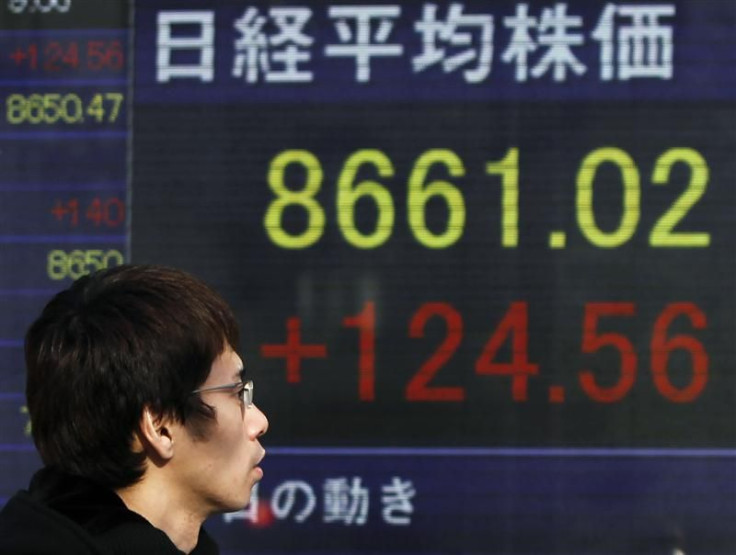Nikkei Falls Back from 3-Month High; Fanuc Disappoints

(Reuters) - Japan's Nikkei average retreated from a three-month high on Thursday as disappointing results from Fanuc and Fuji Electric weighed, though the Federal Reserve's signal of its readiness to further stimulate the U.S. economy provided support.
Industrial robot maker Fanuc Ltd (6954.T) was the top weighted faller on the Nikkei, down 1.9 percent after its results disappointed some investors.
Third quarter orders edged up quarter-on-quarter and beat expectations, but results levels themselves lacked clout and concern over a FY guidance miss, if narrow, is strong, Morgan Stanley MUFG analyst Yoshinao Ibara said in a report to clients.
Despite the mix of positives and negatives, our net impression is slightly negative.
Fuji Electric Co (6504.T), a maker of motors and turbines, posted a net loss of 5.95 billion yen for the nine months ended in December and cut its operating profit forecast for the year to March by 32 percent. Its shares sank 6.6 percent.
Although it is still early in the Japanese quarterly earnings season, it has so far been disappointing. Of the nine Nikkei companies that have reported October-December earnings figures, two-thirds of them came in below market expectations, Thomson Reuters StarMine data showed.
That compares with 39 percent of S&P 500 companies missing forecasts.
Weak fourth-quarter earnings from U.S. firm Corning Inc (GLW.N) also hurt fellow glass makers Nippon Electric Glass Co Ltd (5214.T) and Asahi Glass Co Ltd (5201.T), which lost 6.7 and 3 percent, respectively.
The Nikkei <.N225> was down 0.4 percent at 8,847.35 by the midday break, after rising 1.1 percent to its highest closing level in three months on Wednesday and gaining for the sixth out of the past seven sessions.
The focus will be on whether the Nikkei can test its 200-day moving average and the October high of 9,152. I do think
gains will continue into February but not at this kind of fever pitch, Hideyuki Ishiguro, assistant manager of investment strategy at Okasan Securities.
There is selling pressure above the current level (8,800-9,000) so if foreign buying can offset those pressures for the benchmark, the gains will probably continue.
Foreign investors stepped up net buying of Japanese equities to 176.6 billion yen ($2.3 billion) in the week ended January 21, - the largest since last July, finance ministry data showed.
BEST JANUARY SINCE 1999
The benchmark Nikkei is up 4.6 percent this month, and if the index were to finish with the current gains, it would be the best January performance since 1999.
The broader Topix index <.TOPX> eased 0.4 percent at 764.73 on Thursday.
Elpida Memory Inc (6665.T) shed 3.5 percent, snapping a seven-day winning streak. The Nikkei business daily reported that the struggling memory chipmaker aimed to sign a memorandum of understanding with U.S. firm Micron Technology (MU.O) as early as the beginning of next month.
Elpida, which faces a debt repayment crunch in late March and early April, declined to comment on recent rumors or reports.
But Tokyo Electric Power Co (9501.T) surged 6.9 percent after sources told Reuters that the utility, which faces massive clean-up costs and compensation after its Fukushima nuclear power plant was wrecked by earthquake and tsunami last March, will accept a 1 trillion yen public fund injection.
© Copyright Thomson Reuters 2024. All rights reserved.











